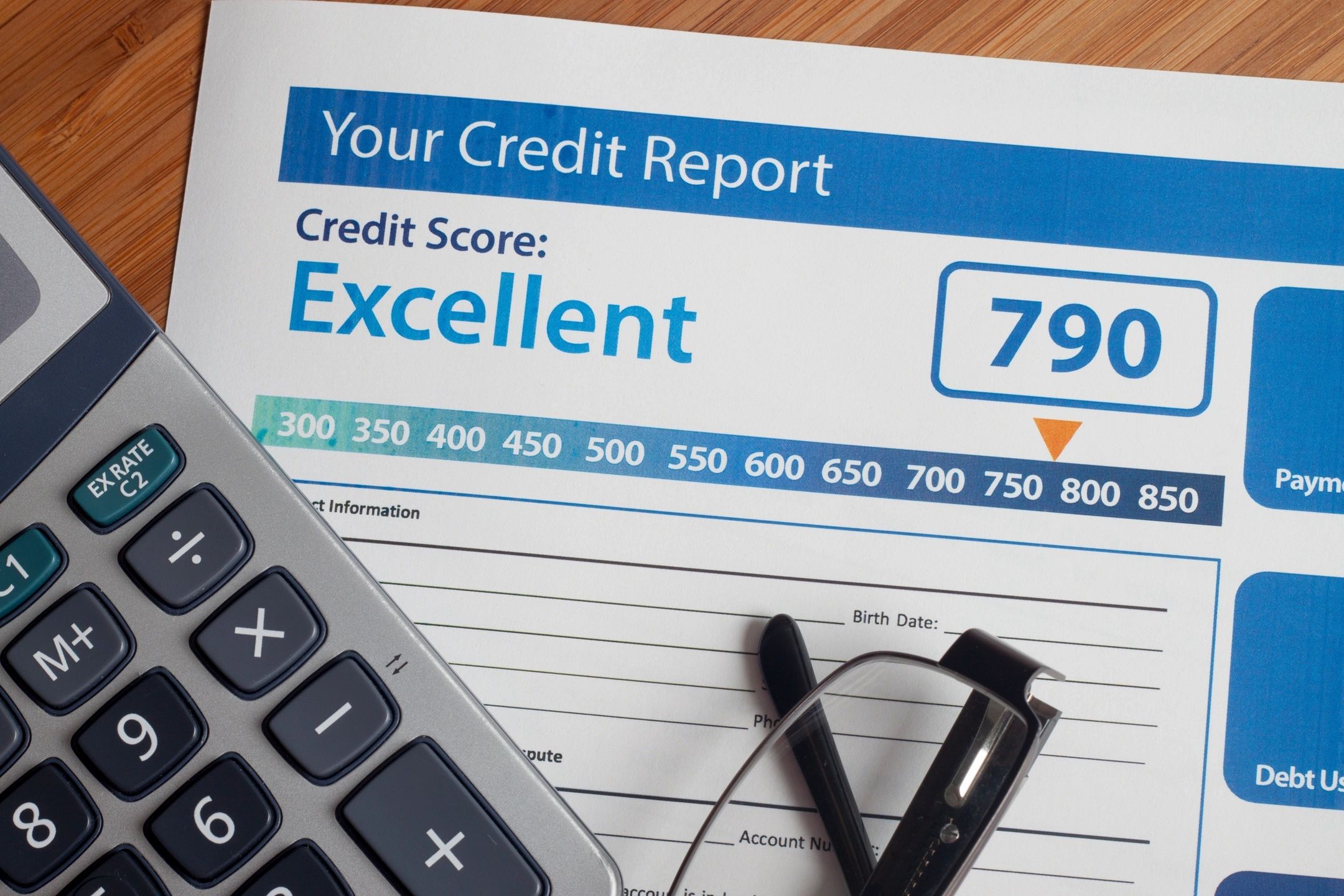You have a lot on your plate. You’re busy taking care of patients, managing your practice, and keeping up with the latest medical developments. Unfortunately, one thing that may not be at the forefront of your mind is your credit report. If you’ve been late on payments, it’s important to understand how to remove them from your credit report.
Key Takeaways:
- Bad credit can cost you a lot more on a mortgage loan than someone with good credit. Lenders may charge higher interest rates, require larger down payments, and charge higher closing costs to offset the risk of lending to someone with bad credit.
- Higher interest rates are one of the biggest ways bad credit can cost you on a mortgage loan. A difference of just a few percentage points in interest rates can result in thousands of dollars more in interest payments over the life of the loan.
- Bad credit can make it more difficult to get approved for a mortgage loan in the first place. Many lenders have strict credit score requirements and won’t approve borrowers with bad credit, which can make it challenging to find a lender who will work with you.
Why is it important to have a good credit score?
Your credit score is one of the most important factors that lenders and financial institutions use to determine whether or not to give you a loan or a credit card. Your credit score is a reflection of  your financial history, including your payment history, how much debt you have, how long you’ve had credit accounts, and more. It’s important to have a good credit score because it can determine your ability to get a loan, a mortgage, or even rent an apartment.
your financial history, including your payment history, how much debt you have, how long you’ve had credit accounts, and more. It’s important to have a good credit score because it can determine your ability to get a loan, a mortgage, or even rent an apartment.
Your credit score is a reflection of your financial history and it can have a significant impact on your ability to get approved for a mortgage loan. If you have bad credit, it can cost you a lot more on a mortgage loan than someone with good credit. In this article, we’ll explore how much bad credit can cost you on a mortgage loan.
Higher Interest Rates
One of the biggest ways bad credit can cost you on a mortgage loan is by resulting in higher interest rates. Lenders use your credit score to determine your level of risk as a borrower. If you have a low credit score, lenders may view you as a higher risk borrower and charge you a higher interest rate to offset that risk. This means that you could end up paying thousands of dollars more in interest over the life of your mortgage loan than someone with good credit.
For example, let’s say you want to buy a home for $250,000 and you’re putting down 20% ($50,000). If you have good credit (a FICO score of 760 or above), you might qualify for a 30-year fixed-rate mortgage with an interest rate of 3.25%. This would result in a monthly mortgage payment of $870 and a total interest paid over the life of the loan of $120,891.
However, if you have bad credit (a FICO score of 620 or below), you might only qualify for a 30-year fixed-rate mortgage with an interest rate of 5.25%. This would result in a monthly mortgage payment of $1,383 and a total interest paid over the life of the loan of $270,572. That’s a difference of $102,681 in interest payments!
Higher Down Payment Requirements
In addition to higher interest rates, bad credit can also result in higher down payment requirements. Lenders may require you to put down a larger percentage of the purchase price in order to offset the risk of lending to someone with bad credit. This means that you’ll need to come up with more cash up front, which can be challenging for many homebuyers.
For example, let’s say you want to buy a home for $250,000 and you’re putting down 20% ($50,000). If you have good credit, you might be able to qualify for a conventional loan with a 20% down payment requirement. However, if you have bad credit, the lender might require you to put down 25% or even 30%. This means that you would need to come up with an additional $12,500 to $25,000 just to meet the down payment requirement.
Higher Closing Costs
Bad credit can also result in higher closing costs. When you apply for a mortgage loan, the lender will charge various fees and costs, such as loan origination fees, appraisal fees, and title fees. These fees can add up quickly and can be a significant expense for homebuyers.
If you have bad credit, the lender may charge you higher fees to offset the risk of lending to you. This means that you could end up paying thousands of dollars more in closing costs than someone with good credit.
 Difficulty Getting Approved
Difficulty Getting Approved
Finally, bad credit can also make it more difficult to get approved for a mortgage loan in the first place. Many lenders have strict credit score requirements and won’t approve borrowers with bad credit. This means that you may need to spend more time shopping around for a lender that will work with you, which can be a frustrating and time-consuming process.
Late payments and your credit report
Late payments can have a negative impact on your credit report. When you make a payment late, it can stay on your credit report for up to seven years. This can make it more difficult for you to get a loan or credit card in the future. In addition, late payments can result in higher interest rates and fees, which can cost you more money over time.
How to get late payments removed from your credit report
If you’ve missed a payment or have been consistently late on payments, there are a few steps you can take to get them removed from your credit report.
- Contact your creditor – The first step is to contact your creditor and explain your situation. If you’ve missed a payment or have been consistently late, they may be willing to work with you. Some creditors offer hardship programs or may be willing to waive late fees. It’s important to be honest about your situation and explain why you’ve been late on payments.
- Make a payment – If you’re able to, make a payment on your account. Even if it’s not the full amount, making a payment can show that you’re making an effort to pay off your debt. This can also help to prevent further damage to your credit score.
- Request a goodwill adjustment – A goodwill adjustment is when a creditor agrees to remove a late payment from your credit report as a one-time courtesy. This is often done in situations where you’ve been a long-time customer and have a good payment history. To request a goodwill adjustment, write a letter to your creditor explaining your situation and requesting that they remove the late payment from your credit report.
- Dispute errors – Sometimes, late payments can show up on your credit report in error. If you believe there’s an error on your credit report, you can dispute it with the credit bureau. This can be done online or by mail. The credit bureau will investigate your dispute and remove the late payment if they find that it was reported in error.
- Hire a credit repair company – If you’re having trouble getting late payments removed from your credit report, you may want to consider hiring a credit repair company. These companies specialize in helping individuals improve their credit scores by disputing errors on their credit reports and negotiating with creditors. It’s important to do your research before hiring a credit repair company, as there are many scams out there.
Why it’s important to remove late payments from your credit report
 Removing late payments from your credit report is important for a number of reasons. First, it can improve your credit score, which can make it easier for you to get a loan or credit card in the future. Second, it can save you money in interest and fees. Third, it can give you peace of mind knowing that your credit report is accurate and up-to-date.
Removing late payments from your credit report is important for a number of reasons. First, it can improve your credit score, which can make it easier for you to get a loan or credit card in the future. Second, it can save you money in interest and fees. Third, it can give you peace of mind knowing that your credit report is accurate and up-to-date.
Conclusion
As a physician, it’s important to stay on top of your credit report and ensure that it accurately reflects your financial history. Late payments can have a negative impact on your credit score and can make it more difficult for you to get a loan or credit card in the future. Fortunately, there are steps you can take to get late payments removed from your credit report, including contacting your creditor, making a payment, requesting a goodwill adjustment, disputing errors, and hiring a credit repair company.
In addition to taking steps to remove late payments from your credit report, there are other things you can do to improve your credit score. These include paying your bills on time, keeping your credit utilization low, and not applying for too much credit at once. By taking these steps, you can improve your credit score and put yourself in a better financial position.
In conclusion, as a physician, it’s important to prioritize your credit score and take steps to ensure that it accurately reflects your financial history. Late payments can have a negative impact on your credit score, but there are steps you can take to get them removed from your credit report. By doing so, you can improve your credit score, save money in interest and fees, and put yourself in a better financial position.







